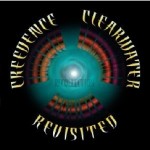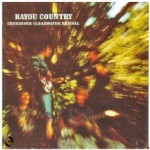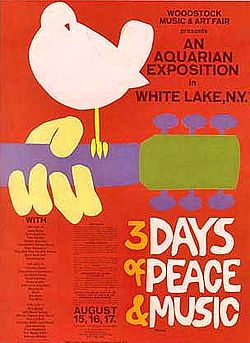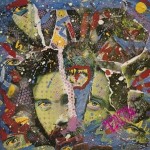Stu Cook was the bassist for Creedence Clearwater Revival, whose songbook includes classics such as “Proud Mary”, “Bad Moon Rising”, “Green River”, “Down on the Corner”, “My Back Door”, “Fortunate Son”, “Have You Ever Seen the Rain?”, “Travelin’ Band”, and “Up Around the Bend”. Creedence also did smokin’ covers of “Susie Q” and “I Heard It Through the Gravevine”. The band broke up acrimoniously in 1972, and was inducted into the Rock and Roll Hall of Fame in 1993.
In 1995, Cook and Creedence Clearwater Revival drummer Doug “Cosmo” Clifford formed Creedence Clearwater Revisited, the name change reflecting the absence of singer/songwriter John Fogerty and his late brother Tom. This band, which not coincidentally also abbreviates to CCR, plays the hits we know and love from their days with Creedence Clearwater Revival.
This interview was done by phone on 7/25/14 for a preview article for Creedence Clearwater Revisited’s concert at the Ventura County Fair in Ventura on 8/8/14.
For more on Creedence, here is an interview with Doug “Cosmo” Clifford.

Jeff Moehlis: I saw you guys perform a couple of years ago at the Chumash Casino, and thought you really sounded great. Is it still fun for you to be playing these songs that are over forty years old?
Stu Cook: Yeah, it is. We take a lot of pride in our work. Although we don’t take ourselves too seriously, we are serious about our performance. It’s fresh every night for us.
JM: Is it the same line-up as it was then, about two years ago?
SC: The only line-up change we’ve had in the last three or four years was we’ve added Kurt Griffey on lead guitar, so if it’s been in the last couple of years, we’re the same band. I can’t really be sure when we last played there.
JM: You’re a “Travelin’ Band”, right? You can’t keep track of all these shows. [both laugh]
SC: I’m in Mahnomen, Minnesota tonight.
JM: So you must have a show there?
SC: Yeah, tonight, then off to someplace in South Dakota tomorrow, then down to Colorado on Sunday. It’s a busy summer for us.
JM: Creedence Clearwater Revival had a different sound from the other Bay Area bands. From your perspective, how did CCR fit in with that scene?
SC: It’s a very interesting question. Number one, we were from the East Bay and remained in the East Bay, in the San Francisco Bay Area. I briefly lived in San Francisco during that time period, but the other guys were married and had their own lives set up prior to our success. We didn’t have to come to San Francisco for the Summer of Love. We were already living in the area.
We played the same venues as most of the bands that were more central to the scene. We were probably more on the periphery because of our musical style. It was more rooted in the blues and country music, and we focused more on AM radio songs. [John] Fogerty was writing two-and-a-half, three minute songs, whereas the rest of San Francisco was jamming on and on for long periods of time on one song. We could do half a dozen songs in the time period they played one song [laughs].
We had a different approach. I think it served us well. We didn’t become lost in the San Francisco scene. We played the Fillmore, the Carousel Ballroom, and Winterland. We were part of it, but we didn’t live in a commune, you know what I mean? It was interesting because a lot of the music came from musicians who moved to San Francisco because of the cultural dynamic that was going on. We were already there, so we had a bit of a different take on it.
JM: It’s amazing how productive you guys were. Like in 1969, you released three classic albums. How did you guys do it, how were you so productive?

SC: The first one, Bayou Country, was actually recorded in 1968.
JM: Well, still, that was a productive year.
SC: Yeah, it came out in January of ’69, so I guess if you’re looking at release dates we had three albums in ’69. It was a busy year. Fogerty was cranking out songs, and we were in the studio recording pretty regularly. We would record, record, record, and then pretty soon we had an album’s worth of material, so out it came. We didn’t want to get too far ahead of what could be physically packaged. As the singles went up and down the charts and new songs were released, we quickly came to an album’s worth before we knew it. Being a radio band, cranking out, like I said, the two-and-a-half, three minute songs, we just kept getting there. We got to the finish line quicker so there was room for three albums.
Looking back, it didn’t make a lot of sense to work that hard. I don’t think that anyone would’ve forgotten about us if we’d only put out two albums that year. But that’s just the way our career unfolded. It wasn’t professionally guided. The universe was more in control of it than any one hand.
JM: What was the recording process typically like? Were the songs heavily rehearsed beforehand, or did you work out the arrangements in the studio?
SC: Everything was pretty much nailed down before we left the rehearsal space. We knew that we could do our best work if we went into the studio fully prepared. We would rehearse, rehearse, rehearse, and then go in and record as quickly as we could. We never viewed the studio as a creative workshop. It was a place to get it done.

JM: Could you describe your Woodstock experience?
SC: [laughs] Well, we were in L.A. on Friday, we were recording either a Dionne Warwick special or an Andy Williams special [JM: Cosmo saidthat it was an Andy Williams special]. It was a television variety show. We took the red-eye to Boston, chartered a jet to fly to upstate New York, and it was just madness by the time we got there. You know, the gates had already come down. It was a free concert by then. We got to the Holiday Inn pretty wasted from traveling all night. The place was just a madhouse.
We got some sleep and the helicoptered us in a few hours later to the festival site. We hung out all day, mainly with the guys from Bill Graham’s organization, Barry Imhoff. He was there taking care of Carlos Santana and the Santana band. We all knew each other from the Bay Area, so we hung out at their trailer all day. We had a pretty comfortable experience backstage [laughs]. Way better than the folks out front.
Then the rain started, and it started to interfere with the timing of the event, and the equipment started becoming damaged by the elements. Some of the stuff got unsafe, the lighting got unsafe. The show was running late. Pretty soon, I think it was after midnight, one o’clock, maybe later when we finally got on. We were the headliner on Saturday night. We were supposed to go on at ten or something like that. By the time we got on, after a long set by The Grateful Dead, it was quite late. People [laughs] needed some rallying at that point. It was pitch black. All the spotlights were out, very few stage lights. We had very little direct contact with the audience because of the distance and the darkness. But we went out and I thought played a hell of a set. I just recently listened to the entire performance, and it was a great little concert that we played. I’m really happy with it. I wish we’d been included in the film, of course, but you know that’s water under the bridge as well.
JM: I understand that you attended Altamont, although you didn’t perform there.
SC: I flew in with Santana. We helicoptered in and I spent the whole day there taking photographs, experiencing the event. I just happened to be in the crowd when that fella got killed. It was just pure panic there. We got out of there. I remember The Stones were still playing when we said, “We gotta get out of here.” There were playing a great show. I’ve seen The Stones maybe fifteen times, and it was one of the best concerts. The tension in the air was so thick that the only thing that kept the lid on was The Stones performing magnificently. If they had succumbed to the bad vibes that were going on, who knows what might have happened. It was really one of the best shows that I can recall.
It was a really interesting experience. I’m glad that I went as a private citizen rather than as part of the band, because I don’t know how we would’ve handled the craziness that went on that night.
JM: In the late ’70’s, how did you end up producing some of Roky Erickson’s music, and what was that experience like?
SC: How I ended up is actually through our Texas connection with Doug Sahm and the Sir Douglas Quintet. Cosmo and I played on and Cosmo produced an album entitled Groover’s Paradise for Doug. We recorded some of it down at Cosmo’s Factory. It was released on Warner Brothers. A pretty good album, I think one of Doug Sahm’s best albums.

Through that we met a fella who ended up being Roky’s manager, Craig Luckin. Craig and I were friends, and Craig asked me if I’d be interested in producing Roky. Well, I had no idea what I was getting into, but I think it worked out pretty good. We did fifteen songs which were spread over two album releases, one in the United Kingdom and one in the States. I think it’s pretty near the pinnacle, if not the pinnacle of Roky’s post-13th Floor Elevators work. It was just recently rereleased, The Evil One, all fifteen of the tracks that I worked on were rereleased with the original artwork. It’s really a splendid package. And, then, a couple of other subsequent albums that Roky did when he was hanging around Northern California were just released by a company up in the Northwest called Light In The Attic. They did a great job, just a terrific job.
You know, Roky is one of the great rockers [laughs]. I guess that might be how he got his name. But at times difficult to corral and get focused, but a really, really interesting songwriter, good guitar player, and just a knockout singer, a great rock and roll singer.
JM: I think it was worth the effort. I’m sure it was challenging.
SC: It was. At the time it felt like pulling teeth, but when it was all done, it felt good. And I know Roky really liked the result, so that’s the cherry on top of the cupcake for me, when the artist was happy with the collaboration.
JM: What advice would you give to an aspiring musician?
SC: [laughs] Stay in school! No, look, an aspiring musician is different from someone who wants to make a career in the music business. It’s really interesting how many people are intimidated by a musical instrument. I mean, you could always find one that you can figure out how to play, get someone to show you how, that you can put in your pocket like a harmonica and take with you. You don’t have to have a guitar tech or anything. It’s really easy to get a grip on the language of music. I always encourage people to give it a try, whether it’s singing or keyboards or any instrument. It can give you a lot of satisfaction, and it’s always great to get a bunch of strangers together and make music.
But it’s a tough business. It requires a tremendous amount of hard work, and, even more, luck. You can’t just do it as a hobby and expect anything real exciting to happen, except for self-satisfaction. If you try to have a career in the music business you have to be prepared to be disappointed a lot. Those are things you learn from, and again your commitment will bring you back with lessons learned.
It’s the only business in the world where the longer you’re in it, the better your odds. Because most people, they give up. People, while they may not be ready to give you a break, they’re always paying attention to who’s still there trying. And so, the longer you’re in the business I think the better your odds become. Not by much [laughs]. Most people give up early, so the people still standing have a better chance.
If you were in retail you’d be out of business in three or four years, right? You’re out of money and that would be it. Your restaurant fails, or whatever your business idea was. It couldn’t stand the amount of time and commitment that it takes to become successful. That’s why you see so many people that have long careers. They’ve figured out how to do their thing, how to be unique and profession, and maximize their talent, and always be open to opportunity. It takes a long time to learn how to keep all those balls in the air. While I say, “Go for it,” I also say, “Be prepared to have a backup plan.”
JM: I’ll keep my next question a little vague so you can answer it how you wish. Do you want to set the record straight on anything about the band or your career?
SC: You know, nobody really cares about the record [laughs]. I mean, everybody’s record needs straightening out. Let’s just assume that, right? Everybody’s been wronged somehow. I don’t want to burden anybody with the past. The past is the past, and I’m more focused on the now, which leads to the future. I don’t think, number one, anybody’s really interested [laughs], deeply interested. Whatever I say about it will only be just my take on it, it really won’t resolve anything, as true as my words may be.
JM: Getting back to the upcoming show, maybe you can tell us what we can look forward to?
SC: Oh man, you want me to give it all away?
JM: Give it all away!
SC: All right, here’s the deal. If you like Creedence, you’re going to love this band. We have a good time. We never take ourselves seriously, but we always take the music seriously, so you’re going to get a great show. It’s going to be all Creedence all night. So come party with us.
You know, we have over three generations of fans now. Many of them were introduced to the music the same way you were, from siblings, parents, uncles, aunts, music around the house. Both Doug and I are just amazed at how the baton has been passed from generation to generation. It really makes us feel good about that music.


Discussion
No comments for “Interview: Stu Cook”